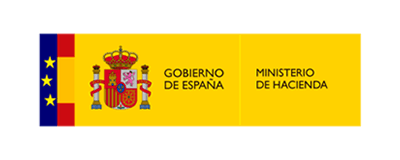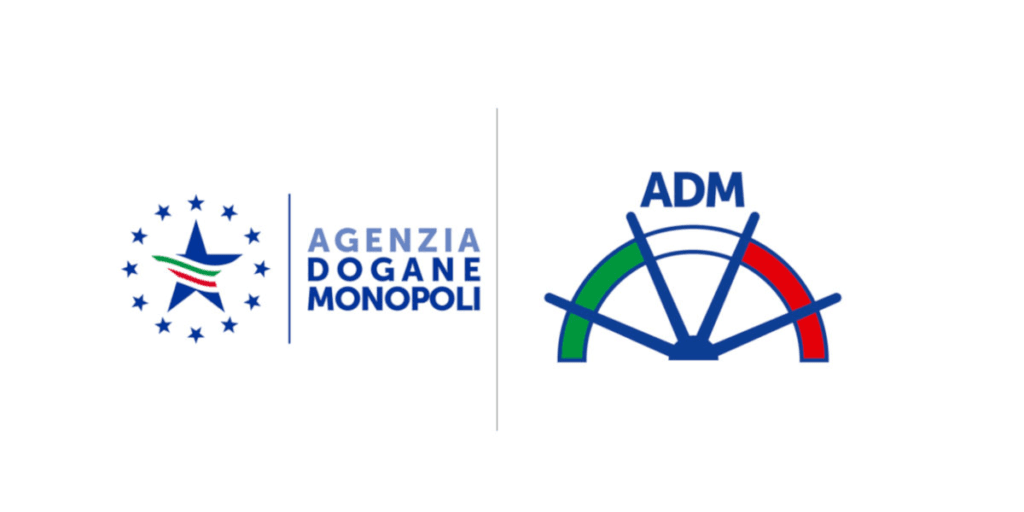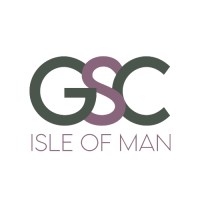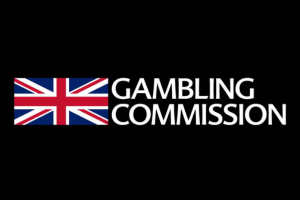When choosing an online casino, one of the most crucial factors to consider is its license. A license serves as a “permit” that certifies the casino operator has been officially authorized by a government or regulatory authority to operate. To obtain this license, the operator must meet stringent standards in areas such as financial stability, operational transparency, game fairness, and user protection.
Why is a license so important? It acts as a “guarantee” that players can enjoy games in a safe and fair environment. Licensed online casinos are required to undergo regular audits by independent agencies and maintain a transparent operational structure. This helps reduce the risks of fraud and unethical practices, fostering a healthy online casino market where players can trust that their funds and personal information are secure.
In other words, a license acts as a seal of quality assurance in the largely intangible world of online casinos, ensuring both reliability and safety. For anyone considering playing at an online casino, verifying the license is a critical step to finding a safe and reputable platform.
Types of Licenses
When selecting an online casino, understanding its license is essential. Online casino licenses can be broadly categorized into two types: national licenses specific to individual countries and comprehensive licenses that allow broader international operations. Below, we’ll explore the characteristics and prominent examples of each category.
National Licenses Issued by Individual Countries
National licenses are issued by specific countries or regions, allowing online casinos to operate in accordance with the laws and regulations of that jurisdiction. These licenses are evaluated based on the regulatory stringency and reliability of the issuing country.
Spanish License (DGOJ)
Reliability: ★★★★☆
Issuing Authority: Spanish Directorate-General for the Regulation of Gambling (DGOJ)

The Spanish License is an operational permit for online casinos and gambling services issued by the Spanish government. It is regulated and managed by the DGOJ (Dirección General de Ordenación del Juego), a public institution responsible for overseeing Spain’s gambling sector. Obtaining and maintaining this license is mandatory for offering online casino services legally within Spain.
Issuing Authority: DGOJ
The DGOJ operates under the Spanish Ministry of Finance, acting as a public agency that supervises and manages the online gambling market. It performs rigorous assessments and compliance checks on both new applicants and existing operators to ensure player protection and fairness.
Difficulty of Acquisition and Regulatory Standards
- Strict Operational Standards:
To obtain a Spanish license, operators must meet stringent requirements, including financial stability, anti-money laundering (AML) measures, responsible gambling (RG) initiatives, RNG (Random Number Generator) fairness, and compliance with GDPR (General Data Protection Regulation) for data protection. - Transparency and Reporting Obligations:
Even after acquiring the license, operators must provide regular business reports, undergo financial audits, and demonstrate continuous implementation of player protection measures.
Advantages
- Access to the Spanish Market:
With a Spanish license, operators can legally target Spanish residents and citizens, facilitating customer acquisition in the Spanish-speaking market. - High Credibility:
The DGOJ is one of the most reputable regulatory bodies in Europe. Operators holding this license gain significant trust and credibility among players and industry professionals. - Enhanced Brand Image:
Passing DGOJ’s stringent assessments boosts a casino’s brand reputation. Players recognize these casinos as safe and fair, leading to greater customer retention and repeat visits.
Disadvantages
- High Costs (Approximately €38,000):
Licensing fees, tax reporting, and auditing expenses are substantial, with maintenance costs often exceeding those of other regions. - Complex Application Process:
The process requires extensive documentation and thorough evaluations, taking several months to complete in many cases. - Market Restrictions:
Spain’s legal framework imposes restrictions on advertising, promotions, and bonuses, limiting operators’ marketing flexibility.
Conclusion
The Spanish License (DGOJ) is one of the most prestigious licenses in the European market, known for its rigorous requirements and robust player protection measures. Although demanding to acquire and maintain, it offers high reliability and ensures a safe gambling environment for players. For operators looking to expand into the Spanish market, this license serves as a powerful asset for strengthening brand credibility and gaining market share.
UK Gambling Commission (UKGC)
Reliability: ★★★★★
Issuing Authority: UK Gambling Commission (UKGC)

The UK Gambling Commission (UKGC) is a public authority established by the UK government to oversee and regulate all aspects of the gambling industry. Founded in 2007 under the Gambling Act 2005, the UKGC is responsible for enforcing strict regulations and oversight for a wide range of gambling activities, including online casinos, lotteries, bookmakers, and land-based casinos.
Roles and Functions
Licensing and Regulation
The UKGC issues and manages licenses required for offering gambling services legally within the UK market. Operators must meet stringent requirements to obtain a license, including anti-money laundering (AML) measures, player protection protocols, data security, and responsible gambling (RG) initiatives.
Compliance and Auditing
License holders are subjected to regular audits and reporting obligations to ensure compliance with the UKGC’s rigorous standards. Violations may result in severe penalties, including fines or revocation of the license.
Player Protection and Responsible Gambling
The UKGC prioritizes player welfare by implementing comprehensive guidelines to ensure a safe and fair gaming environment. This includes verifying Return to Player (RTP) rates, testing Random Number Generators (RNGs) for fairness, and introducing measures to combat gambling addiction.
Fraud Prevention and AML Policies
To combat fraud and money laundering, the UKGC enforces strict Know Your Customer (KYC) and AML policies. Operators are required to adhere to robust protocols to identify and prevent criminal activity.
Key Features of the UKGC License
High Credibility
A UKGC license is globally recognized as one of the most reputable in the gambling industry. Operators holding this license are widely regarded as safe and trustworthy, offering players a secure and fair gaming experience.
High Acquisition Difficulty
Obtaining a UKGC license is a rigorous process, often taking several months. The application requires extensive documentation, thorough vetting, and compliance with demanding regulations. Additionally, costs are significant, including fees based on Gross Gambling Yield (GGY), ongoing audit expenses, and legal consultation.
Market Access Benefits
The UK is one of the largest gambling markets in the world. Holding a UKGC license grants operators access to a vast customer base and unparalleled business opportunities within this lucrative market.
Conclusion
The UK Gambling Commission (UKGC) is a leading regulatory authority dedicated to maintaining order in the UK gambling industry while ensuring player protection. Although obtaining and maintaining a UKGC license is challenging and costly, the benefits are immense, including unmatched credibility and enhanced brand value. Recognized as one of the most authoritative licenses worldwide, it provides operators with a solid foundation of trust and access to one of the most competitive gambling markets globally.
Italian License
Reliability: ★★★★☆
Issuing Authority: Agenzia delle Dogane e dei Monopoli (ADM)

The Agenzia delle Dogane e dei Monopoli (ADM) is a public regulatory authority established by the Italian government to oversee and manage the gambling industry. Officially known as the “Agenzia delle Dogane e dei Monopoli,” ADM supervises all forms of public gambling in Italy, including lotteries, sports betting, land-based casinos, and online casinos.
In 2012, ADM replaced its predecessor, AAMS (Amministrazione Autonoma dei Monopoli di Stato), following an organizational restructuring. ADM now serves as the primary authority for issuing and managing gambling licenses in Italy.
Roles of ADM
License Issuance and Regulation
ADM grants licenses for the legal operation of online casinos and sportsbooks within the Italian market. To obtain a license, operators must meet stringent standards, including compliance with Anti-Money Laundering (AML) protocols, Know Your Customer (KYC) requirements, and Responsible Gambling (RG) practices.
Compliance and Auditing
License holders are subject to periodic audits and reporting obligations to ensure fairness and transparency. Violations may lead to penalties, suspension, or even revocation of the license, maintaining a well-regulated and trustworthy market.
Player Protection
ADM prioritizes player safety by ensuring secure payment methods, personal data protection, and independent audits of Random Number Generators (RNGs). It also supports measures to prevent gambling addiction and promotes responsible gambling practices.
Fraud Prevention and Market Order
ADM enforces high standards for fraud prevention, requiring operators to implement robust KYC protocols and AML measures. These initiatives prevent underage gambling, money laundering, and other illicit activities, contributing to a safe and orderly gambling market.
Key Features of the ADM License
High Reliability
ADM licenses are recognized for their reliability and stability across Europe. Casinos and bookmakers holding this license are legally acknowledged as trustworthy operators within the Italian market.
Market Accessibility
Italy is one of Europe’s largest gambling markets. Obtaining an ADM license enables operators to legally target Italian players, opening opportunities for substantial market growth.
Costs and Challenges
Acquiring an ADM license involves significant expenses, including application fees, auditing costs, and technical compliance charges. Additionally, maintaining the license requires ongoing compliance efforts and annual reporting, leading to considerable upkeep costs.
Conclusion
The Agenzia delle Dogane e dei Monopoli (ADM) plays a pivotal role in regulating and supervising the Italian gambling market. Securing this license offers operators access to a lucrative market and enhances their brand value. However, operators must adhere to stringent compliance standards, prioritize player protection, and commit to maintaining transparency.
For operators seeking to expand into the European market, the ADM license is an excellent choice for establishing credibility and fostering long-term growth.
Swedish License (Spelinspektionen)
Reliability: ★★★★☆
Issuing Authority: Swedish Gambling Authority (Spelinspektionen)

The Swedish License (Spelinspektionen) is an online gambling license issued by the Swedish Gambling Authority, a government-established regulatory body in Sweden. Following the reform of the gambling laws in January 2019, the Swedish market for online casinos and sports betting was liberalized. With proper vetting, domestic and international operators can legally and safely offer their services in Sweden.
Below, we detail the role of Spelinspektionen, the benefits of obtaining a Swedish license, and its requirements.
Role of Spelinspektionen
Compliance and Auditing
License holders are subject to regular audits and reporting obligations. In cases of fraud or non-compliance, severe penalties, including fines, suspension, or revocation of the license, are enforced. These measures ensure market fairness and transparency.
License Issuance and Regulation
Spelinspektionen issues licenses for operators to provide online casinos and sports betting in the Swedish market. To qualify, operators must meet stringent standards, including compliance with Anti-Money Laundering (AML) protocols, Know Your Customer (KYC) requirements, and Responsible Gambling (RG) measures.
Player Protection
Spelinspektionen prioritizes safeguarding player rights and combating gambling addiction. This includes ensuring secure payment methods, protecting personal data, and independently auditing Random Number Generators (RNGs). The authority also promotes self-exclusion programs and enforces advertising regulations to encourage responsible gambling.
Fraud Prevention and Market Order
Operators must implement robust KYC and AML protocols to prevent underage participation and money laundering. These measures ensure a fair and orderly market, sustaining its integrity over the long term.
Key Features and Benefits of the Swedish License
High Reliability
The Swedish license is renowned across Europe for its stringent player protection policies and responsible gambling initiatives. Licensed operators are recognized as legally compliant entities within the Swedish market, enhancing their reputation and reliability.
Attractive Market Access
Sweden is a significant gambling market in Europe. Holding a Swedish license enables operators to legally target Swedish players, unlocking opportunities for customer base expansion and brand strengthening.
Costs and Complexity
Obtaining and maintaining a Swedish license involves application fees, audit costs, and technical compliance expenses. Additionally, operators must adhere to ongoing compliance and annual reporting requirements. However, these investments yield long-term benefits in terms of trustworthiness and market growth within Europe.
Conclusion
The Swedish License issued by Spelinspektionen is highly regarded for its strict regulations prioritizing player protection and responsible gambling. Acquiring this license allows operators to enter the Swedish market and significantly improve their brand value, though it demands adherence to rigorous regulatory standards and compliance measures.
For operators aiming to expand into Europe, the Swedish License is a robust choice for establishing credibility and gaining a competitive edge in the industry.
Comprehensive Licenses
Comprehensive licenses are not limited to a specific country or region and allow for extensive international operation of online casinos. These licenses are ideal for companies looking to operate across multiple countries and regions.
Malta Gaming Authority (MGA) License
Reliability: ★★★★★
Issuing Authority: Malta Gaming Authority (MGA)

The Malta Gaming Authority (MGA) License is one of the most prestigious licenses in the online gambling industry, issued by the Malta Gaming Authority, a public entity established by the Republic of Malta. It is highly regarded across Europe for its stringent standards designed to ensure fair and safe operations.
Role of MGA
License Issuance and Regulation
MGA issues licenses for operators to legally offer online casino and sports betting services in Malta. To qualify, operators must meet strict requirements, including Anti-Money Laundering (AML) measures, Know Your Customer (KYC) policies, and Responsible Gambling (RG) practices.
Compliance and Auditing
License holders are subject to regular audits and reporting obligations. Any violation, such as unethical practices, is met with severe penalties, including fines, suspension, or revocation of the license. This ensures fairness, transparency, and a secure environment for players.
Player Protection
MGA prioritizes player safety by ensuring secure payment methods, data protection, and independent audits of Random Number Generators (RNGs). The MGA also provides self-exclusion tools and guidelines to protect players from problem gambling.
Market Order and Credibility
MGA enforces robust KYC and AML protocols, preventing underage gambling and money laundering. This helps maintain market integrity and build trust within the industry.
Key Features and Benefits of MGA License
High Trustworthiness
The MGA license is recognized as one of the most reliable licenses in Europe. Operators holding this license gain enhanced credibility and brand value, earning the trust of players and industry stakeholders worldwide.
Global Market Access
By obtaining an MGA license, operators can easily access not only the European market but also a global audience. It acts as a hallmark of credibility and allows operators to attract international players.
Costs and Complexity
While obtaining an MGA license involves application fees, audit costs, and compliance-related expenses, these investments result in long-term benefits such as increased trust and customer base expansion. Maintenance requires annual reporting and adherence to ongoing regulatory standards.
Conclusion
The Malta Gaming Authority (MGA) License is one of the highest-rated licenses in the online gambling industry, backed by strict regulations and robust player protection measures. For operators, acquiring this license significantly boosts international credibility and competitiveness. It is an essential choice for companies seeking to expand into Europe and establish a strong foothold in the global online gambling market.
Curaçao License
Reliability: ★★★★☆
Issuing Authority: Curaçao Gaming Control Board

The Curaçao License is an online gambling license issued by the government of Curaçao, a Dutch territory in the Caribbean. It has been in operation since the 1990s, allowing various gambling operators to provide services globally, including online casinos and sports betting. Below, we outline the key features, advantages, and considerations for obtaining a Curaçao License.
License Issuance and Regulation
Relatively Simple Process
Compared to European licenses (such as MGA and UKGC), the Curaçao License has a simpler application process with shorter approval times. This makes it a popular choice for new operators entering the market.
Cost-Effective Option
The application fees and annual maintenance costs are relatively low compared to other regions, making it an accessible option for startups and smaller operators.
Compliance and Auditing
Flexible Regulatory Standards
The Curaçao License is known for its relatively lenient regulatory standards. While this allows operators greater flexibility in operations, it also means that operators are responsible for implementing their own robust measures for player protection and AML (Anti-Money Laundering) compliance.
Challenges in Oversight
Although periodic compliance audits and reporting are required, the regulatory checks are often perceived as less stringent compared to licenses from stricter jurisdictions. This can affect the license’s reputation for reliability.
Player Protection and Fraud Prevention
Operator-Led Initiatives
Player protection measures, such as safeguards against gambling addiction and underage participation, are largely left to the discretion of operators. Operators seeking to enhance their credibility must ensure high standards of integrity and transparency.
Quick Market Entry
The flexible regulations make it easier to rapidly enter emerging markets or adopt innovative business models, such as cryptocurrency-based gambling.
Key Features and Benefits of Curaçao License
Low-Cost Entry
With minimal financial barriers, the Curaçao License is an attractive first step for startup operators looking to establish themselves in the online gambling industry.
Global Reach
Holding a Curaçao License allows operators to offer services to players worldwide. It is particularly beneficial for companies that face challenges in obtaining stricter licenses but still wish to expand internationally.
Conclusion
The Curaçao License is favoured for its flexibility, ease of acquisition, and cost efficiency, making it an appealing option for many operators. However, it is often considered less stringent in terms of player protection and regulatory compliance compared to other licenses, which can impact its overall reputation. While it serves as an excellent starting point for entering the global market and launching operations quickly, operators aiming for long-term credibility and access to regulated European markets may need to consider obtaining more robust licenses.
Gibraltar License
Reliability: ★★★★★
Issuing Authority: Gibraltar Betting and Gaming Association (GBGA)

The Gibraltar License is an online gambling license issued by the government of Gibraltar, a British Overseas Territory. It is one of the most highly regarded licenses in the European market, known for its stringent standards and its role as a historical hub for the gambling industry. Below, we outline the key features, benefits, and requirements of the Gibraltar License.
License Issuance and Regulation
Stringent Application Standards
The Gibraltar License prioritizes reliability and fairness, requiring operators to meet extremely high compliance standards. Applicants must demonstrate adherence to Anti-Money Laundering (AML) measures, Know Your Customer (KYC) protocols, and Responsible Gambling (RG) practices, among other requirements.
Longstanding Reputation
Gibraltar has long been a base for land-based casinos and bookmakers, housing many major gambling companies. This history bolsters the international reputation and brand value of the Gibraltar License.
Compliance and Auditing
Regular Audits and Reporting Obligations
Licensed operators must undergo periodic audits and fulfil strict reporting obligations. Non-compliance may result in heavy fines, suspension, or revocation of the license. These rigorous measures maintain the fairness and transparency of the market.
Prioritisng Player Protection
The Gibraltar License emphasizes creating a safe and secure gambling environment. Measures include independent audits of RNGs (Random Number Generators), protection of personal data, and secure payment systems. Operators are also required to implement robust player protection policies.
Fraud Prevention
Operators are mandated to implement stringent KYC and AML measures to combat money laundering and prevent underage gambling. These practices ensure market integrity and uphold Gibraltar’s status as one of the most trusted jurisdictions in the industry.
Key Features and Benefits of the Gibraltar License
Enhanced Brand Value
Holding a Gibraltar License signifies that an operator has passed rigorous standards, earning the trust of players and industry stakeholders worldwide. This dramatically boosts brand reputation and credibility.
Strategic Access to European Markets
Gibraltar’s position as a gateway to the European Economic Area (EEA) offers significant advantages. Licensed operators gain credibility and competitive leverage across Europe.
Costs and Challenges
High Costs of Acquisition and Maintenance
The Gibraltar License is associated with significant expenses, including application fees, audit costs, and technical compliance fees. Ongoing compliance and reporting requirements further add to the maintenance costs.
Long-Term Investment Returns
While demanding in terms of costs and compliance, the Gibraltar License offers substantial benefits, including enhanced trust, stronger customer acquisition, and long-term market sustainability across Europe.
Conclusion
The Gibraltar License is among the most prestigious and trusted gambling licenses in Europe. It demands strict compliance and high maintenance costs, but these requirements are offset by the unparalleled credibility and brand value it provides. Operators targeting European markets can leverage the Gibraltar License to establish a competitive edge and foster long-term success in the industry.
Isle of Man License
Reliability: ★★★★★
Issuing Authority: Gambling Supervision Commission (GSC)

The Gambling Supervision Commission (GSC), established by the Isle of Man government, is a public regulatory body known for its stringent standards and high credibility in the online gambling industry. As a British Crown Dependency, the Isle of Man is recognized as a reputable licensing jurisdiction with a long-standing history in the European market, earning the trust of operators and players worldwide.
Role of the GSC
License Issuance and Regulation
The GSC issues licenses for legal operation of online casinos, sports betting, and other gambling services within the Isle of Man. Applicants must meet rigorous international standards, including compliance with Anti-Money Laundering (AML) measures, Know Your Customer (KYC) protocols, and Responsible Gambling (RG) practices.
Compliance and Auditing
Licensed operators are subject to regular audits and reporting obligations to ensure transparency and fairness. Non-compliance may result in fines, license suspension, or revocation, safeguarding market integrity.
Player Protection
The GSC prioritizes player safety by mandating independent audits of Random Number Generators (RNGs), protecting personal data, and ensuring secure payment systems. These measures create a secure environment for players.
Market Integrity and Credibility
Fraud Prevention
Operators must implement robust KYC and AML policies to prevent money laundering and underage gambling. These measures help maintain a clean and credible market.
History and Reputation
The Isle of Man has a well-established reputation for gambling regulation, with the GSC license recognized as one of the most reliable in the European market.
Key Features and Benefits of the GSC License
High Credibility
The GSC license is highly trusted by international players and industry stakeholders. Obtaining this license enhances brand value and builds customer confidence.
Access to the European Market
Holding a GSC license allows operators to establish themselves as legally recognized entities in the European market, gaining a competitive edge.
Costs and Complexity
Acquiring and maintaining a GSC license involves application fees, audit costs, and technical compliance expenses. Strict compliance with regulations is required, making it a significant investment. However, this leads to long-term benefits such as trust and market expansion.
Conclusion
The Gambling Supervision Commission (GSC) license is widely regarded as one of the most stringent and reliable licenses in the European online gambling industry. Its acquisition boosts international credibility, enhances market competitiveness, and ensures compliance with the highest standards of player protection. For operators aiming to expand into Europe and build a trustworthy brand, the GSC license is an excellent choice.
Summary
Licenses for online casinos are critical indicators of a casino’s reliability. National licenses (e.g., Spain, the UK, Italy, Sweden) offer access to specific markets with strict regulations, ensuring high trust and safety. In contrast, comprehensive licenses (e.g., MGA, Curaçao, Gibraltar, Isle of Man) allow broader market access, often with lower acquisition costs and faster processing.
Players should always check the type and credibility of a license when selecting an online casino to ensure a safe and trustworthy experience. Licenses like those issued by the Malta Gaming Authority (MGA), UK Gambling Commission (UKGC), and Gibraltar Licensing Authority are among the most reliable, offering strict regulations and high security.
When enjoying online casinos, always verify the license for a secure gaming experience!



